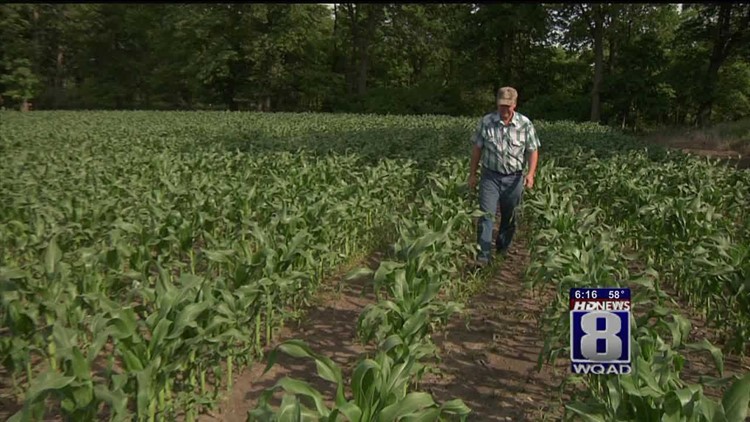(CNN) — Ron Gibson is always eager to show off his bustling Spanish onions — 130 acres of them, to be exact — on his family’s farm just west of Ogden, Utah.
“I like to come over here and just look at them,” said Gibson, who is also the president of the Utah Farm Bureau. “It’s a break from what’s going on over there,” he says, gazing to the south side of his property that’s been farmed by his family for 149 years. “Over there” is the large building his 1,500 dairy cows are milked in every day.
Times have been difficult for Gibson and dairy farmers across the country the past couple years. Dropping milk prices and a disappearing labor force have forced thousands of US dairy farms to close.
“We have 160 dairy farms in Utah right now,” Gibson explained. “It’s a very real possibility that by the end of this year, we could have 100.”
With looming trade wars on the horizon after President Donald Trump’s proposed tariffs, Gibson fears foreign buyers of American milk will find other markets to buy from and never return. The administration has placed numerous tariffs on Chinese goods in recent months, with the latest round announced earlier this month affecting goods such as fruit and vegetables, handbags, refrigerators, rain jackets and baseball gloves.
“I hope that one morning President Trump’s just going to wake up and send out that 3:30 in the morning tweet that says tariffs are gone,” said Gibson. “But the problem I have is once he sends that tweet, are the buyers across this world going to come back to American agriculture? Or are they going to be so upset at us over this whole mess that we don’t get our customers back?”
Across Utah’s state line, in Hotchkiss, Colorado, first-generation fruit farmer Harrison Topp worries the tariffs will force him to compete against much larger northwest orchards to sell his apples.
“We’re not a big export region,” explains Topp. “But if Mexico puts a 20% tariff on apples, those large-scale growers in the northwest are going to start looking for a new market place. And those markets could be domestic where we sell.” With a greater supply of apples in the market, the price farmers get selling them will drop.
Both men (one voted for Trump and one did not) both agree trade policy has been long overdue for fixing. But neither believe high tariffs are part of the solution.
“It feels really reckless right now. Agriculture is being gambled with,” said Topp. He wants Congress to pass a comprehensive farm bill to help him and other farmers keep their farms profitable and thriving.
For Gibson, he simply wants the President to give him a place to sell his milk and onions.
“I understand what President Trump is trying to do. We’ve been taken advantage of by China and by Canada and by some of these other countries,” said Gibson. “But we have to have free and fair trade.”



